Rising Stars
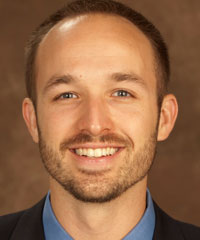 Andrew Butler
Andrew Butler
Duke University, USA
http://duke.edu/~ab259/index.html
What does your research focus on?
Generally speaking, I study human memory and learning. However, I am particularly interested in how the act of retrieving information from memory affects subsequent memory for that information. Many people consider memory retrieval to be a neutral event, much like measuring someone’s weight. Just as stepping on a scale doesn’t change how much someone weighs, memory retrieval is assumed to reveal the contents of memory but leave them unchanged. However, a large body of research has shown that retrieving information from memory actually changes memory. My program of research explores the underlying cognitive processes that produce this basic finding as well as various practical applications.
What drew you to this line of research? Why is it exciting to you?
My interest in human memory started with a class on the topic taught by Gene Winograd that I took during my junior year at Emory University. I fell in love with memory research over the course of that semester. At first I was hooked by the puzzles and phenomena, but ultimately my interest was sustained by the fact that memory plays a fundamental role in virtually every aspect of cognition.
Later in graduate school, my interest in human memory expanded greatly in both breadth and depth. Washington University in St. Louis is one of the best places in the world to study human memory. The sheer number of memory researchers is incredible, but perhaps more impressive is the variety of approaches to the study of memory — both within the Department of Psychology and other departments (biology, neuroscience, anthropology, history, education, etc.).
Who were/are your mentors or psychological influences?
Roddy Roediger, my doctoral advisor, has had the biggest influence on my development as a scientist. He is a terrific role model, a wealth of knowledge about psychological science, and a staunch advocate for his students. I have learned many things from Roddy, but the most valuable lesson that he has taught me is about the value of relationships. He has been hugely successful in his own career, but his active interest in fostering the careers of others is what sets him apart. He makes everyone else around him better. I hope that I can help my students and colleagues in the same way. While at Washington University in St. Louis for my doctoral training, I had the opportunity to interact with many other fabulous people too. I learned an enormous amount from the faculty, my research collaborators, and my peers in graduate school.
Beth Marsh, my postdoctoral advisor, has had the second biggest influence on my development. Over the past two years of working with her at Duke University, I have gained a whole new perspective on memory research. She has given me the freedom to pursue my own ideas, while also helping to shape my thinking about memory. Beth has also taught me a lot about navigating the complex world of grant funding — an invaluable skill that will serve me well throughout my career. During my time at Duke, David Rubin has been another important mentor for me. He has taught me a great deal about autobiographical memory in a relatively short time. I have also benefited from working with new research collaborators and interacting with other members of the Duke community.
Another major influence was the people who got me started on my path in cognitive psychology: Gene Winograd and Lynne Nygaard (my senior thesis advisor) at Emory University, and Fred Dick and Liz Bates at University of California, San Diego (where I worked for a year after college). Finally, the students with whom I have worked on research projects have had a huge influence on my thinking about memory through their questions, comments, and insights (a fresh perspective can be extremely valuable). I have benefited greatly from their hard work in accomplishing research projects.
To what do you attribute your success in the science?
I think that much of my success can be attributed to the people in my life and the opportunities that I have been afforded. Throughout my life I have been blessed to have people who supported my ambitions and gave me the chance to succeed. Ever since I was a little boy, my parents have stressed that it is learning that matters, not grades and other achievements. I think that this mindset caused me to discover joy of learning for sake of learning, and ultimately led me to pursue a career in science. My teachers, mentors, colleagues, collaborators, and fellow students helped me to acquire the knowledge, skills, and experiences needed to achieve that career. And, of course, I could not have done any of it without the love and support of my friends and family (my parents, my sister, and my wonderful wife).
What’s your future research agenda?
My main line of research revolves around how retrieval practice (i.e. testing) can be used to promote long-term retention and transfer of learning with implications for educational practice. Within this general line of research, I plan to continue investigating topics such as: 1) exposure to misinformation and the acquisition of false knowledge, 2) the use of feedback to correct memory errors, and 3) people’s metacognitive ability to assess the accuracy of information retrieved from memory. In addition, I am currently developing a new line of research that investigates how retrieving memories of events from our lives can change the way in which we remember those events. The goal is to gain a better understanding of how retrieval affects the both the content and phenomenological characteristics of autobiographical memories. Potential applications of this research include the development of interventions for various mental health disorders (e.g., post-traumatic stress disorder).
Any advice for even younger psychologists? What would you tell someone just now entering graduate school or getting their PhD?
Read every day. Write every day. Interact with lots of different people. Immerse yourself in psychological science. Many of the most exciting discoveries in science occur at the intersection between different disciplines or areas, so share your ideas with researchers that are outside of your area and listen to their ideas. Remember that science is a collective enterprise — we are all on the same team.
Please write a sentence or two about the publication you are most proud of or feel has been most important to your career. As challenging as it may be, please limit it to one publication.
Butler, A. C. (2010). Repeated testing produces superior transfer of learning relative to repeated studying. Journal of Experimental Psychology: Learning, Memory, and Cognition, 36, 1118-1133.
I am extremely proud of this publication for several reasons: 1) the findings demonstrate that retrieval practice can be used to promote the transfer of knowledge to a variety of contexts, 2) it communicates my dissertation research on which I spent a lot of time and effort, and 3) it is my first solo publication and thus represents an important step in my career.
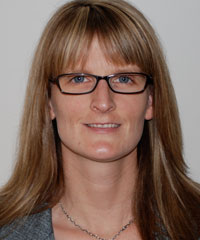 Julie Bugg
Julie Bugg
Washington University, USA
What does your research focus on?
The primary focus of my research is cognitive control, and age-related changes in control. I am interested in the mechanisms humans use to resolve interference, the interplay of expectancy-driven and stimulus-driven control, the degree to which these mechanisms are impaired versus spared with age, and remediation of age-related cognitive control decline.
What drew you to this line of research? Why is it exciting to you?
I became interested in cognitive control and the intersection of aging and control during graduate school while reading Hasher and Zacks’ classic work. I was fascinated by the inhibitory deficit hypothesis and the clever approaches they were using to test it. The view was so different from the way I had been thinking about age-related cognitive decline, which I found intriguing.
My interests in cognitive aging most definitely grew out of the fact that my grandmother lived in the same household as my family while I was growing up. After enrolling in several psychology classes as an undergrad, I became more interested in the cognitive challenges that she and her friends often joked about. Because my time away at college represented one of the first periods during which I was not interacting with her on a daily basis, my periodic visits home enabled me to observe changes in her cognitive abilities that I otherwise would not have noticed. This made me wonder about what could be done to attenuate cognitive decline with age.
Who were/are your mentors or psychological influences?
After grad school, I accepted a post-doc position funded by a National Institute on Aging training grant at Washington University in St. Louis. This position provided me with the opportunity to collaborate with and learn from a brilliant set of scholars including Larry Jacoby, Denise Head, Todd Braver, Dave Balota, Mark McDaniel and Roddy Roediger. The interactions with these individuals were influential as was the overall experience of being immersed in a world-class research environment. Karla Gingerich, an incredibly talented professor at Colorado State University where I attended graduate school, also continues to be an influential mentor with regard to broadening my consideration of new approaches to stimulating learning and engaging students in the classroom.
To what do you attribute your success in the science?
My achievements thus far reflect a lot of hard (but incredibly enjoyable) work, persistence, the support of great mentors and collaborators, and the fact that I remain unconvinced of my success.
What’s your future research agenda?
I see myself continuing to work on basic issues in cognitive control (e.g., when do humans engage control versus simply rely on environmental contingencies; what types of features serve as effective, implicit cues for cognitive control) and on better characterizing contextual constraints on older adults’ use of different types of cognitive control mechanisms. In the coming year, my colleagues and I will also be completing a 3 – year NIA-funded study examining the independent and combined effects of exercise and cognitive training on older adults’ cognitive function, and I am looking forward to exploring our findings.
Any advice for even younger psychological scientists? What would you tell someone just now entering graduate school or getting their PhD?
Think, think, write! I happen to really enjoy the writing process, but believe that I have only recently developed an approach that works well (at least for me). I never force myself to write (e.g., during a certain hour, or for a certain number of hours). Instead, I do much of the “writing” in my head so that at the time I sit down to write, the section of the manuscript that I am working on is essentially written. This prevents the frustration of not being able to write productively during scheduled writing sessions. Of course, it also means that you must be willing to devote a lot of time to thinking about your work when you are not working per se (e.g., while exercising).
One other piece of advice is to expect to be discouraged at times. I recall being so bummed out when data did not turn out the way I had predicted. I equated this with failure but have, with experience, learned to think differently about data that are not well behaved. It’s important to remind yourself that every result tells you something (e.g., the theory needs to be modified; your design was ineffective). A related piece of advice is to explore your data from multiple angles—there is no single “right” way of looking at most data sets.
What publication are you most proud of or feel has been most important to your career?
Bugg, J. M., Jacoby, L. L., & Chanani, S. (2010). Why it is too early to lose control in accounts of item-specific proportion congruency effects. Journal of Experimental Psychology: Human Perception and Performance. doi: 10.1037/a0019957.
This publication is meaningful for several reasons. One, it reflects a collaboration among myself, my mentor, and an undergraduate student, Swati Chanani, who I had the privilege of mentoring. Second, this was Swati’s first publication, and I found it very rewarding to share this experience with her. Third, it represents what I love about being a cognitive psychologist, the opportunity to develop and test a theoretical account, to contrast it with existing accounts, and to generate novel experimental designs for testing exciting questions.
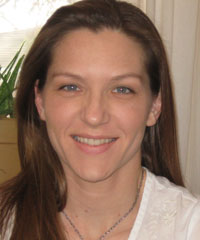 Shana Carpenter
Shana Carpenter
Iowa State University, USA
http://www.psychology.iastate.edu/~shacarp
What does your research focus on?
I study techniques and strategies that improve memory. My research so far has focused on the effectiveness of relatively simple mnemonic techniques such as retrieval practice, the optimal scheduling of repeated study sessions, and the best time during which corrective feedback should be given in order to maximize the amount of information that people can remember.
What drew you to this line of research? Why is it exciting to you?
It was purely by accident that I became fascinated with learning. When I was younger, I didn’t enjoy school at all. My only interest in learning was to try to become more efficient at it so that I could spend as little time as possible on school work. Trying out different memory tricks and strategies became a fascination — almost an obsession — for years. This led to a very reluctant and surprising realization that I quite enjoyed learning new things.
Who were/are your mentors or psychological influences?
I am fortunate to have had a PhD advisor, Ed DeLosh at Colorado State, who gave me the freedom to explore nearly anything that I wanted to. This instilled a sense of independence that I don’t think I fully appreciated at the time, but that turned out to be great preparation for life in academia. I have benefited greatly from the mentorship and collaborations with Alice Healy and Lyle Bourne at the University of Colorado, Boulder. I am immensely grateful to Hal Pashler for taking me on as a postdoc at UC San Diego and providing opportunities that were incredibly important in the development of my independent research, and to John Wixted for his valued collaborations, advice, and contagious enthusiasm.
To what do you attribute your success in the science?
I don’t think I have achieved a particularly high level of success at this point, but what I have achieved could not have been done without the influences of several important mentors, collaborators, peers, colleagues, and friends who have taken the time to listen and offer their advice, expertise, transparent feedback, reality checks, and a healthy dose of non-work-related conversations.
What’s your future research agenda?
I am excited to be starting some new studies on foreign language learning. I have wanted to do this for a long time, but have always known that it would require a great deal of help from collaborators who have specific expertise that I do not. Through an incredible stroke of luck in recent years, I have crossed paths with a number of incredibly talented interdisciplinary scholars and teachers who share these interests and have turned out to be a fantastic team of collaborators. I very much look forward to working with these folks for years to come.
Any advice for even younger psychological scientists? What would you tell someone just now entering graduate school or getting their PhD?
A lot of people will tell you that it is important to find a research topic that really interests you. I would agree. But how do you find this topic? My advice would be to get involved in something — anything, really — as early as possible. It has been my experience that the perfect idea never comes to you when you’re sitting there trying to think of the perfect idea. Jump into action. Read a lot. Collect some data. Analyze it. Think about it. Talk about it with people. Think about it some more, then go off and read some more. Try to keep the wheels turning, and these habits are likely to pay off.
What publication are you most proud of or feel has been most important to your career?
Carpenter, S. K., & DeLosh, E. L. (2005). Application of the testing and spacing effects to name-learning. Applied Cognitive Psychology, 19, 619-636.
This one is special because it was the first. For a variety of reasons, I have found that it is a good thing to try to remember what it was like to do something for the first time.
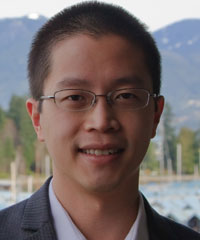 Jason Chan
Jason Chan
Iowa State University, USA
What does your research focus on?
My research focuses on memory illusions and memory interventions. Recently I started to merge these two interests together; the goal is to use memory enhancement techniques such as retrieval practice to reduce erroneous memories. Of course, we have known for a long time that memory can be malleable, so one question that interests me is “what can we do about it?” Memory intervention techniques (such as retrieval practice) can be used to reduce erroneous memories, and they can also be applied to enhance students’ learning in general, but even these interventions can have its limits. One of my research goals is to learn more about these limits.
What drew you to this line of research? Why is it exciting to you?
My interest in the shortcomings of memory started way back when I was an undergraduate student at the University of Victoria. My social psychology instructor (Liz Brimacombe) introduced me to Beth Loftus’ and Gary Wells’ research, and their work really piqued my interest. At that time I thought memory research was part of social psychology, but my cognitive psychology teacher (Mike Masson) told me that my interest “fits squarely into cognitive psychology.” I remember that quote till this day. I really wanted to do research on memory. Loftus’ work was infinitely inspiring to me.
Who were/are your mentors or psychological influences?
As far as mentors go, it has to start with Steve Lindsay (my undergraduate thesis advisor) and Mike Masson (who hired me as a full-time RA). Mike is a very lucid and clear thinker, and Steve is an incredibly smart and hard worker. I learned a lot from them and that really got me a head start before graduate school. My graduate school mentor was Kathleen McDermott. Needless to say, I learned a lot from her. She has an incredible drive and always held me accountable. I feel that she really has instilled a standard of excellence in me and my fellow graduate students. Roddy Roediger has also played a huge role in my thinking and style of research. I don’t think it’s a stretch to say that I am one of the people who are continuing the “Roediger research tradition.” Last but certainly not least, Endel Tulving has had a large impact on me as well. I didn’t see him very often, but I remember almost every single meeting that I had with him.
To what do you attribute your success in the science?
I honestly think I haven’t done anything yet, so this honor comes as a complete surprise. If I have to, I would attribute whatever success I have to my mentors and my fellow graduate students. My work ethic really started before graduate school. I saw Steve Lindsay’s former student Michelle Arnold and Dan Bub’s former student Cindy Bukach working tirelessly in the lab, and that set the tone for me. When I started graduate school at Washington University, I was always talking research with my buddy Yuj Shimizu (Larry Jacoby’s former student). Yuj really helped me understand concepts that were beyond my grasp at the time. My other fellow graduate students and postdocs (e.g., Szpunar, Karpicke, Kang, Butler, Thomas, Bulevich, Watson, Gallo, etc.) all played big roles in my thinking, and they all deserve credit. All in all, Washington University was a really great environment. Of course, lest I forget to mention that the department of psychology at Iowa State has been tremendous to me as well. Obviously, I could not have been productive without the great people here. In particularly, Veronica Dark has helped me a lot in getting through the first couple years of assistant professorship.
What’s your future research agenda?
The overarching goal of my research is to develop techniques that can enhance memory performance both objectively and subjectively. Most of the time it is impossible to assess the true accuracy of a memory. People typically judge the credibility of a memory report based on the overt confidence that accompanies that report, but research has shown that, under some circumstances, the correspondence between objective accuracy and metacognitive judgments can be quite poor. So if we are to truly enhance memory performance, we must enhance it both objectively (as measured my accuracy) and subjectively (as measured by the accuracy of metacognitive reports).
Any advice for even younger psychological scientists? What would you tell someone just now entering graduate school or getting their PhD?
Nothing is more important than perseverance and respect. If you run into a wall, don’t give up, keep working. Respect your teachers, respect your research, and most of all, respect the work that you must put into graduate school to achieve success. Come in with the right attitude and set your expectation high but realistically. Don’t just think about research when you are at work. Immerse yourself in it. I tend to have my best ideas when I am not at work physically. Nothing is as important as a diligent work ethic. You may have lapses of attention throughout the intense graduate school years, but the trick is to never let those lapses take over. Stay true to your work ethic.
What publication are you most proud of or feel has been most important to your career?
Chan, J.C.K., McDermott, K.B., & Roediger, H.L. (2006). Retrieval-induced facilitation: Initially nontested material can benefit from prior testing of related material. Journal of Experimental Psychology: General, 135, 553-571.
It’s hard to pick just one, but this paper was perhaps the most influential to me because it came out just when I was applying for jobs. If this paper hadn’t been on my CV at the time, I don’t know how my job search would have gone.
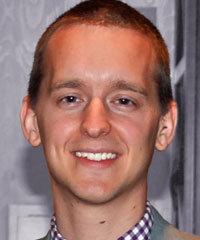 Gregory Samanez-Larkin
Gregory Samanez-Larkin
Vanderbilt University, USA
What does your research focus on?
In general I am interested in how cognition and motivation develop and change over adulthood and into old age. Most of my recent work has specifically examined age-related change in learning and decision making — particularly related to finances. The larger goal of all of this work is to contribute to a more comprehensive model of human aging that integrates evidence and theory from psychology, neuroscience, and economics.
What drew you to this line of research? Why is it exciting to you?
The specific focus on aging is largely the result of hearing several talks by Laura Carstensen in 2002. Fresh out of undergrad, I started attending conferences where Laura was speaking. Hearing for the first time about the drastic demographic changes on the horizon and the unique divergent trajectories of emotion and cognition was incredibly inspiring. I felt a sense of urgency and almost immediately my initial interest in emotion and individual differences had a direction! This felt, to me, like an area where science had the potential to address important changes that are happening right now. In fact, some of the research I am doing now with Brian Knutson and Camelia Kuhnen on susceptibility to consumer fraud in older age will be immediately used to inform the design of prevention efforts by the FINRA Investor Education Foundation. This is an area where there is potential for instant translation, which is very exciting for me.
Who were/are your mentors or psychological influences?
Some of the people who have directly influenced my thinking and style most are Barb Fredrickson, Laura Carstensen, David Laibson, James Birren, and Robert Butler. I’m also a big fan of John von Neumann and David Marr.
To what do you attribute your success in science?
I am tremendously thankful for the collaborators I have had along the way — from undergraduate research assistants to my faculty advisors. Being surrounded with great people makes all of this that much more rewarding and fun. I have always been more inspired by hard work than being “smart,” so I try to surround myself with people who have similar values. This is probably partially related to growing up in a small Midwestern town, an area of the country where labor is highly valued, and then further instilled by my parents along the way (I recently gave my mom, a middle school teacher, a copy of Carol Dweck’s ‘Mindset’ because it reminds me so much of her parenting and teaching style). When something interests me, I get intensely fixated on learning everything I can about it. Before I found my direction in science, it was directed at hobbies like rock climbing, and before that wakeboarding. I scoured magazines and websites for every bit of information I could find. I was even interested in how the equipment was engineered and manufactured and how any emerging technology might change things. It’s both a blessing and a curse, but I approach science with that same spirit. Luckily, I have always been surrounded with people (including my wife!) that help channel this tendency into something less obsessive and more productive. At all of the places I have been trained — Michigan, Stanford, Vanderbilt — I have had very motivating advisors who have helped me learn to find the answers.
What’s your future research agenda?
Probably like a lot of psychologists, my general goal (beyond just the curiosity of figuring out how things work) is to improve well being. I hope that my work can in some way help people make better decisions throughout life that contribute to remaining “mentally sharp, physically fit, and financially secure” in old age (a phrase I picked up from the Stanford Center on Longevity).
Any advice for even younger psychological scientists? What would you tell someone just now entering graduate school or getting their PhD?
One of the most important things I have learned so far is to value criticism. It’s natural to be sensitive and let negative feedback dampen your motivation. While working on my undergraduate honors thesis, one of my readers told me I should probably reconsider a career in science if this (my first draft) was the best I could do. At the time it was devastating. Although I might not deliver feedback the same way, they were right. It wasn’t the best I could do. I had to dust myself off and keep going. The actual science can be frustrating when things don’t work out like you planned and people will constantly challenge your ideas, but you have to learn to love that. It’s all part of making progress. I think about it this way: most of the time when someone offers a critique, they cared enough to pay attention and actually say something about it. A lot of the studies I have most enjoyed working on have come from a critic’s challenge for me to address a limitation of prior work.
The other important thing I learned in graduate school is to give as many talks as possible. It gets easier every time!
What publication are you most proud of or feel has been most important to your career?
So far the publication I am most proud of is a paper that was published in 2010 in the Journal of Neuroscience. It was a bit more challenging to publish than my first few papers, which may have added to the satisfaction of actually getting it accepted. It went through review at a few journals and with each round got better and better. I also particularly like this paper because it is my most integrative to date (both in terms of disciplines and methods). Inspired by early theorizing by James Birren in the 1970’s, more recent computational work by Shu-Chen Li, and a handy statistic developed by von Neumann in 1940’s, we developed a novel measure of neural variability to assess both age differences and relationships with investment behavior. The relationship we observed between age and investment mistakes was mediated by an increase in mesolimbic neural variability. The age-related increase in variability in the midbrain and striatum subsequently replicated in a study by Douglas Garrett in Cheryl Grady’s lab using completely different methods. This paper has also led to a lot of fruitful discussion and several follow-up projects with Shu-Chen Li, Doug Garrett, and Cami Kuhnen.
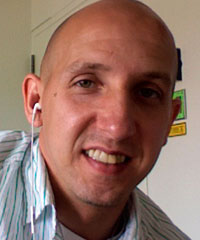 Karl Szpunar
Karl Szpunar
Harvard University, USA
What does your research focus on?
My research interests focus primarily upon, but are not limited to, understanding the cognitive and neural relations that underlie our capacity to remember personal past experiences and imagine personal future experiences.
What drew you to this line of research? Why is it exciting to you?
That we are able, in a moment’s notice, to mentally transport ourselves to events past (real or imaginary) and future (plausible or implausible) has always greatly fascinated me. Of course, having an interest in something as a graduate student can only get you so far. Luckily, my graduate advisor, Dr. Kathleen McDermott, shared (and continues to share) a similar fascination. Kathleen’s support and encouragement made it possible for me to turn my idle musings into a fruitful line of research. It is also important to mention that Dr. Endel Tulving would intermittently visit Washington University in St. Louis at the time Kathleen (and I) were developing our ideas on memory and future thinking. The opportunity to discuss these ideas with the man who had inspired them was a true privilege.
Perhaps the most exciting aspect of this line of research is that so much remains to be discovered. Endel Tulving has often quipped that memory researchers from 100 years in the future would likely chuckle at our “primitive conceptualizations of memory.” This statement has always resonated with me. For a long time, memory has been considered a window into the past and only recently has the field seriously started to consider what it can tell us about the future.
Who were/are your mentors or psychological influences?
I am very fortunate to have learned from a number of great mentors. As an undergraduate, I worked with Dr. Glenn Schellenberg at the University of Toronto at Mississauga. From teaching me how to think through the design of an experiment to writing in a clear and concise manner, Glenn took the time to ensure that I was well prepared for whatever topic of study I decided to pursue in graduate school. When I arrived at graduate school (to work with Dr. Kathleen McDermott at Washington University in St. Louis), I quickly realized how much more there was to learn. Saying that Kathleen helped me with that process would be a gross understatement. Kathleen was a model advisor, mentor, and most importantly a great friend. Dr. Henry (Roddy) Roediger was also highly influential during my time at Washington University. Roddy once mentioned at his lab meeting that we might learn more from discussing research articles as a group than we would anywhere else…I think he was right. I learned a great deal from members of that lab group (Jason Chan, Jeff Karpicke, Andrew Butler, Sean Kang, Franklin Zaromb, Jason Watson, Lisa Geraci, Jes Logan, Jen Coane, Dave McCabe, Alan Castel, John Bulevich, and many others) as well as from fellow graduate students in the department that would periodically take part in those meetings (Tal “sideburns” Yarkoni, Yujiro Shimizu, and many others) over the years. Finally, I have been lucky to work with both Dr. Endel Tulving and Dr. Daniel Schacter as a postdoctoral fellow. Among many other things, having the opportunity to observe the manner in which they effortlessly place their thoughts and research into the context of a “bigger picture” has been an invaluable experience.
To what do you attribute your success in the science?
Unequivocally, any good that has come out of my contribution to the research that I have been involved with over the years is a direct result of the mentoring I have received.
What’s your future research agenda?
My future research agenda will have a lot to do with attempting to delineate the functional consequences of future thinking. We have learned a great deal about the underlying nature of future thinking, but what does it all mean? We already know about some of the psycho-social consequences associated with thinking about the personal future, but what about the cognitive or behavioral consequences? Furthermore, I have been actively involved in a separate line of work that has to do with applying what we have learned about memory in the laboratory to the classroom. I hope to continue this line of research as well.
Any advice for even younger psychological scientists? What would you tell someone just now entering graduate school or getting their PhD?
For those who are entering graduate school, work hard and enjoy yourselves. Pay no attention to how much or little others are working and focus on what you can control…your work ethic. Strive to do your job as well as you can and you will be successful. At the same time, do not take yourself too seriously. Be open to the idea that your work is just one piece of the puzzle. Finally, you will learn a lot more and gain a lot more from the friendships that you will develop over the years. Take the time to enjoy yourself. Your time is your own in graduate school, so it will be up to you to find a suitable balance.
What publication you are most proud of or feel has been most important to your career?
The publication that I am most proud of: Szpunar, K.K., Watson, J.M., & McDermott, K.B. (2007). Neural substrates of envisioning the future. Proceedings of the National Academy of Sciences USA, 104, 642-647.
Kathleen, Jason Watson, and I reported one of the first datasets demonstrating that the neural substrates underlying autobiographical memory retrieval become similarly engaged as people imagine their future. This was the first paper that we published together on this topic and lead to several fun collaborations.





APS regularly opens certain online articles for discussion on our website. Effective February 2021, you must be a logged-in APS member to post comments. By posting a comment, you agree to our Community Guidelines and the display of your profile information, including your name and affiliation. Any opinions, findings, conclusions, or recommendations present in article comments are those of the writers and do not necessarily reflect the views of APS or the article’s author. For more information, please see our Community Guidelines.
Please login with your APS account to comment.